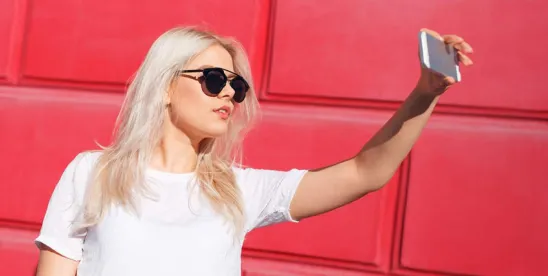On May 28, two "frenemy" social media influencers informed a federal court in Texas that they had settled a lawsuit in which one of them accused the other of infringing on her copyrighted social media posts on Instagram and TikTok, where they both promoted similar products available on Amazon. For now, this put an end to the question of whether it was possible for one person to copyright a beige "aesthetic" or a social media "vibe" and for another to impermissibly infringe by copying it.
Sydney Nicole Gifford and her company sued Alyssa Sheil and her company in April 2024 in the US Court for the Western District of Texas, alleging multiple causes of action arising from the same pattern of purportedly wrongful conduct. Sydney Nicole LLC et al. v. Alyssa Sheil LLC et al., Case No. 24-cv-00423-RP. According to her complaint, Sydney is an influencer who has attracted over half a million followers across various online and social media platforms, including Amazon Storefront, Instagram and TikTok. Sydney claims to have devoted hundreds of hours to establishing her unique brand identity and becoming well-known for promoting household goods, apparel and accessories from Amazon through original photographs and video works that she created. In particular, Sydney laid claim to a "neutral, beige, and cream aesthetic," which she alleged was the essential characteristic of her "brand identity."
Sydney asserted that she first met Alyssa Sheil, another influencer who promotes goods and apparel on Amazon Storefront, Instagram and TikTok, "with the intent of supporting one another’s business." They conducted a photoshoot together for the purpose of posting on their respective accounts.
But shortly thereafter, according to Sydney, Alyssa blocked Sydney from viewing her social media content. It was then that Sydney apparently discovered that Alyssa's posted content began to "replicate the neutral, beige, and cream aesthetic" of Sydney's "brand identity," copied "the same modern, minimal, and sophisticated styling and backdrop," and "featured the same or substantially Amazon products" using "styling and textual captions replicating those of [Sydney's] posts."
Sydney's complaint included multiple examples of posts made by Alyssa that mimicked and allegedly infringed Sydney's own copyrighted posts, photographs and videos. For example, Sydney compared a video of her visiting a retail store in Austin during "Influencer Week" with a very similar video that Alyssa posted about the same event, both of which featured footage of the doormat at the store’s entrance, a rack of clothing in the store, neon light decor and footage of them receiving a cosmetic treatment. Other comparisons included photo slideshows in which first Sydney, and then Alyssa, featured the title "my best amazon home purchases of 2023" with a row of neutral-beige emojis above the text, home office decor, a cream Nespresso machine and rimmed glasses, a cream nonstick pan set and other similar items.
Sydney alleged multiple causes of action, including direct copyright infringement, vicarious infringement, violations of the Digital Millennium Copyright Act (DMCA), trade dress infringement and misappropriation. Among other allegations, Sydney asserted that Alyssa violated the DMCA's prohibitions against providing false copyright management information by intentionally creating social media posts that were "indistinguishable" from Sydney's posts, published under Alyssa's usernames and without any reference to Sydney. With respect to trade dress infringement, Sydney averred:
"Plaintiffs have a distinctive trade dress comprised of monochrome cream, grey, and neutral-beige colors coupled with modern, minimal, sophisticated styling … Markers of Plaintiffs' distinct trade dress include: promotion of products only falling within the monochrome cream, grey, and neutral-beige color scheme; styling of products in modern, minimal backdrops; creation of content featuring Sydney herself; and Sydney's distinct relatable way of speaking to followers. Defendants have intentionally copied and attempted to replicate Plaintiffs' trade dress. Defendants have directly copied and infringed on Plaintiffs' intellectual property rights by promoting the same monochrome cream, grey, and neutral-beige products featured on Plaintiffs' Platforms with the same modern, minimal, and sophisticated styling and backdrop. Defendants have further tried to imitate Sydney's appearance and sound by copying Sydney's haircut, apparel, and way of speaking."
In response to the Complaint, Alyssa moved to dismiss all of the causes of action except for the first claim for copyright infringement. However, the US magistrate judge assigned to hear the motion recommended that it be denied in most respects, dismissing only a limited number of the less essential claims. Then, on December 10, 2024, the district court judge adopted the magistrate judge's recommendations in their entirety.
Notwithstanding that the overwhelming majority of her case survived Alyssa's dismissal motion, Sydney nonetheless opted to resolve her claims. The terms of the settlement have not been made public, but Sydney's decision may have been based, in part, upon the probability that she could not prevail on the merits of her claims.
Many experts and commentators have observed that a "vibe" or a "minimalist aesthetic" lacks sufficient originality to be protected by copyright or trademark law and that, therefore, someone who copies such a vibe or aesthetic cannot be held liable for infringement. Alyssa's photographs and videos didn't duplicate Sydney's protected expression; they merely featured the same goods and apparel, in the same neutral shades, presented in commonly-used arrangements and staging. Others have expressed the view that it is not particularly surprising that the posts and photographs of influencers who promote similar goods from the same manufacturers may share common features and a common "look." This is because brands often rely on multiple influencers to promote their products, who reach out to the same audience of potential consumers.
A ruling on the merits of Sydney's claims might have provided useful guidance to influencers and others who are either seeking to prevent rivals from piggybacking on their industry and effort or, conversely, to know when their imitation crosses the line between the sincerest form of flattery and infringement. For now, competitors should tread carefully as they seek to protect their content or mimic the content of others.




 />i
/>i
